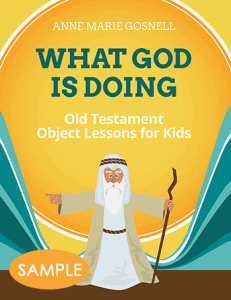Share with your friends!
- to list the first three kings of Israel in chronological order
- to explain why Israel wanted an earthly king
Geography: Israel
Background:
The army of Israel took the ark of the covenant into battle with them hoping they would win, like maybe God was a good luck charm. It didn’t work. In fact, not only did the army lose, but the ark of the covenant was captured by the enemy! The prophecy of Samuel came true and Eli, the priest, lost the priesthood from his family when both of his sons were killed in the battle. 1 Samuel 5:1-4 tells us the story of what happened to the Philistines and the ark. It’s a great story of the power of God! Eventually the ark was sent back to Israel and it stayed in the home of a man named Abinadab for 20 years.
Main Events of 1 Samuel 8-15:
The ark is back, but Eli and his sons are dead. Everyone is in turmoil because of the war with the Philistines. Samuel was very old and he made his sons to be judges in his place, but the people did not accept them. Samuel’s sons did not walk as he walked with the Lord. The people came to Samuel demanding a king, not judges. They wanted to be like all of the other nations. Samuel was not pleased with the people. He knew that God and God alone was to be the leader of the nation. But God told Samuel, “They have not rejected you, they have rejected me.”
So God told Samuel to warn the Hebrew people what the consequences would be if they had a king; for example: the king would take men to be in his army; he would take people to be his servants; he would take farmlands, crops, and flocks from the people; and he would tax the people for his own use. The people agreed and still wanted a king. Therefore, God told Samuel who to anoint for Israel’s first king.
Saul was a Benjamite, from the tribe of Benjamin. He was handsome and taller than all of those around him. Samuel anointed Saul by pouring oil over his head. He then became king of Israel, but he still had to get the people to follow his leadership. Things started off well. Saul was able to save the town of Jabish-Giliad from the Philistines. From this point on, all of Israel was united as a nation with Saul as their king. Samuel reminded Saul and the people that IF they feared the Lord, served Him, listened to His voice, and did not rebel against Him, THEN things would go well for them. HOWEVER…IF Saul and the people rebelled against God, THEN the Lord would be against them.
Saul began to turn his heart away from God. He made THREE big mistakes:
1) Instead of waiting for Samuel, Saul decided to offer a burnt sacrifice himself. Saul may have been king, but he was NOT a priest. Saul did not see anything wrong in what he did.
2) Saul made a foolish oath: Before a battle, Saul said, “Cursed is the man who eats any food until evening, before I have taken vengeance on my enemies!” This was foolish for two reasons. a) Men need food for strength when fighting; b) Saul’s son Jonathan was off fighting when Saul made this oath. Jonathan had no knowledge of the oath. Jonathan was hungry after battle and found some honey. He encouraged the men to eat, as he ate. After he ate, then he was told of the oath by his father. After the battle, the fighting men were so hungry that they began to eat anything, and didn’t bother with cooking, which meant they ate blood which is against God’s law. Saul would not go back on his oath. Because of Saul’s oath, people ended up sinning against God. And the only reason Jonathan wasn’t killed because he ate was because the people refused to kill him.

3) Saul showed stubborn disobedience: Samuel told Saul to go kill the Amalikites in battle. He was not to spare anyone or anything. This was to be God’s punishment on this wicked nation. After the battle, Saul spared the king and the best of the animals and destroyed everything else. When Samuel confronted him, Saul said, “I have performed the commandment of the Lord!” Samuel responded back, “No, You have been rejected by the Lord!”
Life Application or 1 Samuel 8-15:
To obey is better than sacrifice. Even when we do wrong, God would much rather see a repentant person than, a prideful one. Think of the story Jesus told about the tax collector and the pharisee. The pharisee was all proud of himself and listed off all the “good” things he had done. He couldn’t see his sin. The tax collector was on his knees before the Lord, knowing he had done wrong and asked for mercy. We need to be like that tax collector.
Saul had been given the keys to a kingdom. He had the opportunity to lead the people of God and help Israel become a great nation. Instead he would have the kingdom ripped from his grasp.











